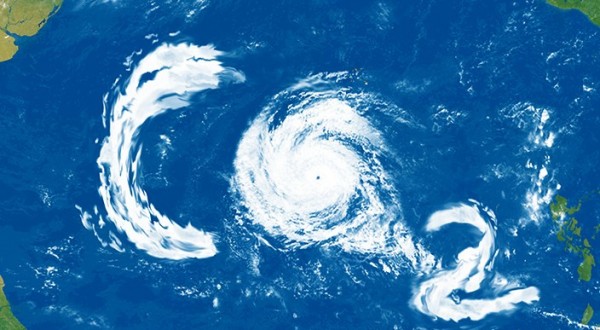ExxonMobil’s new report ”The Outlook for Energy: A view to 2040” forecasts that global CO2 emissions are likely to peak around 2030, and then begin declining. In coming decades, although populations and living standards will rise significantly, ongoing improvements to energy efficiency – and increasing efforts to use lower-carbon fuels wherever practical – will slow the growth in energy-related CO2 emissions.
As people and nations look for ways to reduce risks of global climate change, they will continue to need practical solutions that do not jeopardize the affordability or reliability of the energy they need.
Many nations are already reducing their level of CO2 emissions relative to their GDP. By 2040, the carbon-intensity of the global economy is likely to fall by half, with substantial contributions from OECD and non-OECD nations alike. Energy efficiency gains are expected to be a major contributor to this achievement, supported by a gradual but significant transition to less-carbon-intensive energy types.
As a result of these changes, the report expects global energy-related CO2 emissions to peak around 2030, and then begin declining. Global CO2 emissions are expected to be only about 10 percent higher in 2040 versus 2014, despite the fact that population will have risen by about 25 percent and global GDP will have more than doubled.
Emissions projections
Energy-related CO2 emissions by region
- Global CO2 emissions to peak around 2030, then decline
- Emissions already falling in OECD32; will drop 20 percent 2014 2040
- China’s surge in emissions is slowing; seen peaking around 2030
- Emissions keep rising to 2040 in India, Key Growth, Rest of World
- Efficiency, lower-carbon fuels are key factors in curbing emissions
Energy-related CO2 emissions per capita
- OECD32 has highest per capita emissions, but falls 30 percent 2014-2040
- By 2040, China’s per capita CO2 emissions will be nearing OECD32 levels
- India, Key Growth per capita emissions grow to 2040
- Global per capita emissions fall 10 percent 2014-2040 on efficiency, cleaner fuels
Energy-related CO2 intensity
- Economies in all regions will become less CO2 emissions-intense through 2040
- OECD32 has the lowest CO2 emissions relative to the size of its economy
- OECD32 economies today are about 75 percent less CO2 emissions-intense than China’s
- China’s emissions intensity improves as coal use drops, economy less reliant on industry
- India’s emissions intensity to improve more than 50 percent even as coal use increases
United States CO2 abatement costs
- Many options exist to reduce CO2 emissions, each with different costs
- Best value is improving fuel economy of conventional gasoline vehicles
- Switching to natural gas (vs. coal) in power generation also offers low-cost results
- Solar energy is about double the cost of wind for curbing emissions (vs. coal) in U.S.
- Electric cars offer the worst return, costing upwards of $800/tonne of CO2 abated
Options for addressing long-term climate change risks
According to the report, under a cost-of-carbon approach, the incentives for reducing GHG emissions – as well as the most cost-effective solutions – would become readily apparent. For example, in the United States it is clear that improving the fuel efficiency of conventional gasoline vehicles will reduce more emissions – at a lower cost – than expanding the use of expensive electric vehicles. Also, in the power generation sector, substituting natural gas for coal is a far more cost-effective option for curbing emissions than building new wind or solar facilities for electricity generation. By focusing on market-based solutions, governments can avoid requiring consumers and taxpayers to pay for high-cost solutions when better options abound.
Need for flexibility, transparency
The challenge of meeting global energy needs and managing the risks of climate change is real – and daunting. But it is not the only challenge. In fact, the United Nations recently adopted a set of 17 Sustainable Development Goals, with action on climate of course representing one of these goals. Other goals include improving conditions for people in all countries related to poverty, health, education, clean water and sanitation, economic opportunities, and community and social development.
Since every society and every person have limited resources to address their various priorities, it’s no wonder that everyone wants to avoid paying more than necessary for something to meet a particular need. The logical drive to pursue the most cost-effective options helps ensure that precious financial resources are managed wisely, and not wasted on one priority to the detriment of other needs.
Because the costs are substantial, nations have a compelling reason to adopt climate policies that promote transparency and market-based solutions. The long-term nature of the climate challenge also promises an evolution of available solutions as knowledge expands, technology advances and markets adapt. Therefore, policies that promote innovation and flexibility afforded by competition and free markets will be critical to help ensure the world pursues the most cost-effective opportunities to meet people’s energy needs and reduce global GHG emissions.
Source: ExxonMobil



































































